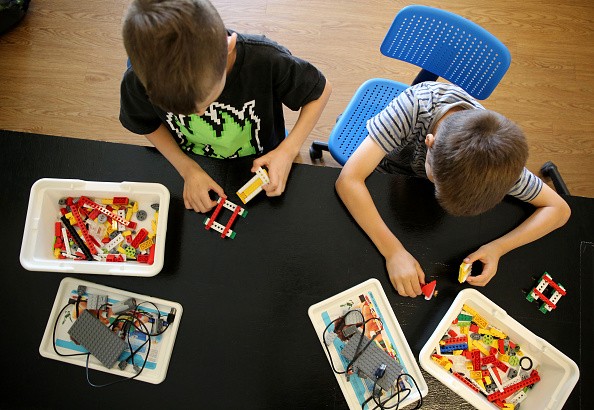With computers being integral to almost every industry in China’s job market, more schools are determined in providing students ground in a vital new skill: computer programming.
"As Deng Xiaoping put it, education starts with children. So should computer sciences," said Song Xinbo, a computer science teacher at Sun Yat-sen Memorial Secondary School in Zhongshan, Guangdong Province.
Song's class of teenagers achieved the second-highest score in a coding test set by HackerRank, a U.S.-based website. They have beaten more than 120 other schools and universities, which include the University of California in Berkley and Canada's University of Waterloo.
The team consists of 41 students and takes coding as an optional class at the Sun Yat-sen. They spend at least two hours a day training for coding contests.
China holds coding contests annually for both provincial and national levels. Gold and silver medal winners will be able to earn a better chance to get qualified in prestigious Chinese universities, such as Fudan, Tsinghua or Peking.
Every year, four prospects are chosen as representatives from tens of thousands of people to compete in the International Olympiad in Informatics. This will be their ticket to the world's top colleges.
Chen Qifeng received a scholarship to Hong Kong University of Science and Technology after winning gold at the Olympiad in 2007, and is now pursuing a doctorate degree at Standford University.
Chen said: "The medal gave me a better chance at getting into a top university and to do research with outstanding professors. In general, programming contests prepare you for the challenging research required for computer sciences. It helped me build solid programming skills and a strong problem-solving ability."
There are a lot of companies that are spotting the market potential for high-tech toys integrated with basic coding tutorials. Lego, a famous toymaker, released Boost, WeDo and EV3, all of which let children build and program a robot.
Shanghai Putao Technology made coding accessible to infants through animation and games.
Zhu Weisong, the CEO of Shanghai Putao Technology, said: "We've noticed schools are pinning more importance on coding, and many kindergartens have set up special corners where children can play with high-tech toys. The new generation are exposed to electronic products at an early age. Why not use these products to educate them?"



























